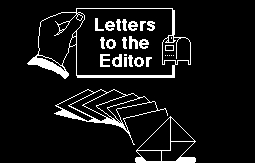Is "trust" in the workplace, and trust in government overrated and misplaced?
Governor Ricketts wants you to "trust" him. Speaker of the Legislature, Jim Scheer, wants you to "trust" him. Should you?
Back around 1985 or so, as an employee of the City of Dallas, I was required along with nearly one-hundred other employees to attend an off-site retreat for the Department of Human Resources. I was employed as the Manager of Compensation, Classification and Employee Selection. The retreat began with the Director of Human Resources telling everyone to repeatedly "trust" him and his leadership as "we" collectively work to achieve our departmental objectives.
I was the only person to raise my hand and say,
"Excuse me, Troy, but "trust" exists as nothing more than an emotion-based, unvalidated, unsubstantiated belief, and as detailed by my job description and the job standards that measure and validate my work product (that is not trust-based), I wasn't hired to work on the basis of my emotions or how I "feel" about the work product. In fact, legally, as you know, without regard to "trust," you will terminate my employment if I fail to perform my essential job functions or fail to comply with departmental rules, regulations, and City policy. This is a linear, fact-based expectation that has absolutely nothing to do with trust. Likewise, should I discover you've embezzled City funds, engaged in theft, or other illegal activities you should expect me to act in compliance with City policy and immediately report your illegal activities to the police and City Manager, because my failure to do so would jeopardize my employment and cause others to wrongly accuse me of criminal involvement. So, I'm not going to "trust" you, and I don't want you or anyone to trust me. I expect all employees, including management, to act in compliance with their assigned job functions and job standards, and in the event of non-compliance, I expect disciplinary action, including termination, or prosectution in the event of criminal activity."
In response to my comments, Troy replied, "Okay, Trip. I see your point. I'll just have to find another word to . . . yes, Trip?" I raised my hand and said, " "Leadership, Troy? Is that the word you're looking for, because you want HR staff to blindly follow your leadership? If so, how do we ignore due dilligence as we perform our essential job functions and problem-solving?"
In summary, Troy changed the subject, and completely abandoned the use of emotion-based business practices that ultimately lead to theft, deceit, discrimination, harassment, incarceration, or murder.
For example, the following people were "trusted" by dozens or hundreds or thousands or millions of people. Click their before and after photos to assess why "trust" is often overrated or misplaced.
QUESTION: Is there absolutely no one you can trust?
ANSWER:
Of course, you can always trust yourself (kinda), unless you have a chronic-obsessive-compulsive-addictive-neurotic personality and you're unable to embrace fact-based, cause-and-effect, common sense reality.
Emotion has absolutely nothing to do with work, because "work" is about the demonstrated and consistent performance of all established essential job functions in compliance with job standards, company policies and procedures, and relevant laws.
Ultimately, it's in your best interest to separate instinct (emotion) from intellect (intelligence), because . . .
Leave "emotions" out of your work and when assessing the work of others. Instead, focus on the objective evaluation of work in compliance with company policies and relevant law and act accordingly.
When it comes to dealing with people in the workplace, or people in government, or dealing with people on things that truly, truly matter to you, don't trust; because trust is not enough. Verify. Validate. Conduct due dilligence.
I welcome your feedback.
For "Trust" Part 2, click here.
For "Trust" Part 3, click here.
For "Trust" Part 4, click here.Trip Reynolds
trip.reynolds@yahoo.com
Reynolds' Rap
May 15, 2018
© 2017-2019 Tripoetry. All Rights Reserved.
First Amendment to the United States Constitution - Congress shall make no law respecting an establishment of religion, or prohibiting the free exercise thereof; or abridging the freedom of speech, or of the press; or the right of the people peaceably to assemble, and to petition the Government for a redress of grievances.



























